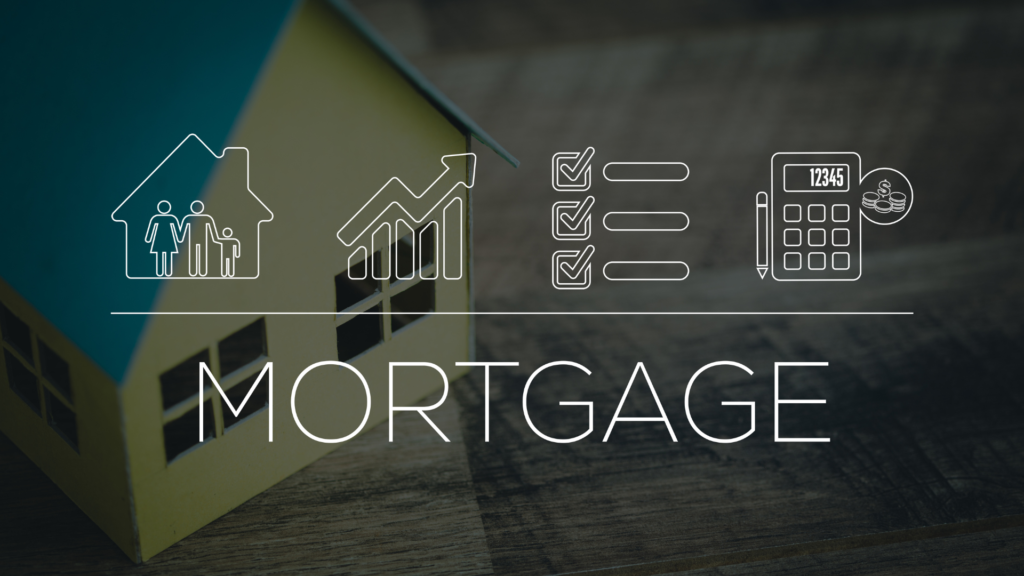
The Complete Guide To Getting A Mortgage (Without The Stress)
Buying a home is one of the biggest investments you will ever make. And in order to be able to purchase that home, you’ll need to get a mortgage loan. There are plenty of things to consider when going through this process, and it can feel like a lot of stressful work.
Especially when you’re self-employed, it can be a bit more challenging than for individuals with a traditional job, as you may have a variable income or a more complex financial documentation. However, it’s entirely possible to get a mortgage as a self-employed person with the right approach and a little help, likely from a mortgage broker such as those found at Prime Mortgage Solutions.
Keep in mind, securing a mortgage doesn’t necessarily have to be stressful, you just have to be smart about it. In this blog post, we’ll break down the basics of getting a mortgage so that you can do all the work with ease!
What is A Mortgage
A mortgage is a loan that’s used to finance the purchase of a property. The property serves as collateral for the loan, which means that if you default on your mortgage payments, the lender can foreclose on your home. Furthermore, it’s essential to understand the various types of mortgages available, such as fixed-rate mortgages and adjustable-rate mortgages, and their implications for your financial stability. You should also assess your own financial situation, including your credit score, income, and expenses, to determine the mortgage amount you can comfortably afford.
Apply For A Mortgage
If you’re in the market for a new home, one of the initial steps you’ll need to take is applying for a mortgage. It can be a wise financial decision, but it’s crucial to make well-informed choices. Before making a commitment, there are several vital factors to take into account. Mortgage agreements may involve a multitude of legal terms, conditions, and clauses. Some of these may be rather complex, and you might find it challenging to fully grasp them on your own. In such cases, seeking Independent Legal Advice is highly recommended. It will ensure that you are making informed decisions and are aware of all the legal and financial aspects of your mortgage, reducing the chances of unexpected issues arising in the future.
Understanding Home Loan Terminology
When you’re in the process of shopping for a home loan, you’ll likely come across a lot of unfamiliar terminologies. To help you navigate the mortgage process, we’ve compiled a list of some common terms and their definitions.
- Amortization: Amortization is the process of repaying a loan in periodic instalments. With each payment, a portion of the principal (the amount borrowed) is paid off, while a portion of the interest is also paid. The remaining balance owed on the loan is amortized over the life of the loan.
- APR: APR stands for Annual Percentage Rate and refers to the total cost of borrowing money for a year, including interest and fees. When comparing loans, it’s important to look at the APR to get an accurate picture of which loan will be more expensive in the long run.
- Closing costs: Closing costs are fees charged by lenders and third parties in connection with your home loan. These can include appraisal fees, title insurance, origination fees, and more. Closing costs are typically paid at closing, but can sometimes be rolled into your loan amount.
- Fixed-rate mortgage: A fixed-rate mortgage is a type of home loan where your interest rate remains constant throughout the life of the loan. This means that your monthly payments will stay the same, even if market conditions change.
- Interest rate: Your interest rate is the percentage charged by your lender.
Making The Right Mortgage Decision
When it comes to mortgages, there are a lot of different options out there. It can be hard to know which one is right for you. Here are a few things to keep in mind when making your decision:
- Your budget: Be realistic about how much you can afford. If need be, make use of an LTV (Loan-to-Value) calculator to ascertain the loan amount you qualify for based on the property’s appraised value. You can also utilize LTV calculators (check this out at https://simonconn.com/loan-to-value-ltv-calculator/) to evaluate the loan’s risk and establish the terms and conditions.
- Your timeline: Do you want to buy a house now or in the future? If you’re not ready yet, there’s no rush. You can wait until you’ve saved up more money or improved your credit score.
Making the right mortgage decision doesn’t have to be stressful. Just take your time and do some research before you make any decisions.
Getting Approved For A Home Loan
One of the most stressful parts of buying a home is getting approved for a mortgage. You may have been pre-approved by a lender, but that doesn’t mean you’ll get the loan. Here are a few tips to help you get approved for a home loan:
- Know your credit score and history. Lenders will pull your credit report and score to see how well you have managed debt in the past. If you have a high credit score and a good history of paying off debt, you’re more likely to be approved for a loan.
- Have a down payment saved up. Lenders like to see that you have skin in the game, so they’re more likely to approve your loan if you have a down payment saved up.
- Show proof of income and employment stability. Lenders want to see that you have a steady income and are employed full-time before they approve your loan. You can show them pay stubs, tax returns, or other documentation to prove your income and employment status.
- Be prepared with additional documentation. In some cases, lenders may ask for additional documentation such as asset statements or bank account records. Be prepared with these documents so you can submit them quickly and avoid delays in the approval process.
- Ask questions and get clarification from the lender if needed. The mortgage process can be confusing, so don’t hesitate to ask questions.
How Much Can You Afford?
There’s no need to be anxious about getting a mortgage. This guide will take you through the process step-by-step, so you can get approved for a loan without any stress.
The first step is to figure out how much you can afford. This will depend on your income, debts, and other financial obligations. You’ll need to create a budget and ensure that your monthly mortgage payment is something you can comfortably afford. This is to ensure that you do not create a tight situation for yourself, or have trouble paying your monthly payments. Although, if you do, you can request your lender for an FL home loan modification (if that is where you live) and renegotiate the terms of your agreement. That said, you should still have a clear idea of what you will be able to comfortably pay off on a monthly basis and avoid future hassle.
Once you know how much you can afford, you’ll need to start shopping around for lenders. It’s important to compare rates and terms from multiple lenders before deciding. Once you’ve found the right lender, it’s time to fill out an application. Be sure to include all your financial information so that the lender can accurately assess your situation. After your application has been submitted, the lender will review your information and plan. If everything looks good, you’ll be approved for the loan and can start shopping for your new home!
Home Loans For First-Time Buyers
If you’re a first-time home buyer, the process of getting a mortgage can be daunting. There’s a lot of paperwork to fill out, and it can be difficult to understand all of the terms and conditions.
One of the most important things to do before you start shopping for a home is to get pre-approved for a mortgage. This will give you an idea of how much money you can borrow, and it will also help you narrow down your search to homes that are within your budget. When you’re ready to start looking for a home, it’s important to work with a real estate agent who understands your needs as a first-time home buyer. They can help you find homes that fit your budget and answer any questions you have about the purchasing process.
Once you’ve found the perfect home, it’s time to start negotiating with the seller. Your real estate agent will be able to help you with this, but it’s important to remember that you’re in control of the negotiations. Don’t be afraid to ask for what you want, and don’t settle for less than what you deserve. Once the negotiation process is complete and you’ve reached an agreement on the price, it’s time to apply for your mortgage. The application process can seem daunting at first, but if you’re prepared and have all of your documents in order, it will go smoothly.
